Private Proxy Server: Browse the Web Safely and Anonymously
A Private Proxy Server gives you your own safe path to the internet as it hides your real IP, protects your identity, and keeps connections fast and stable. At 9Proxy, we use dedicated IPs to help you do sensitive tasks, bypass location blocks, and collect data smoothly. This guide will show how private proxies work and how they can improve your online experience.
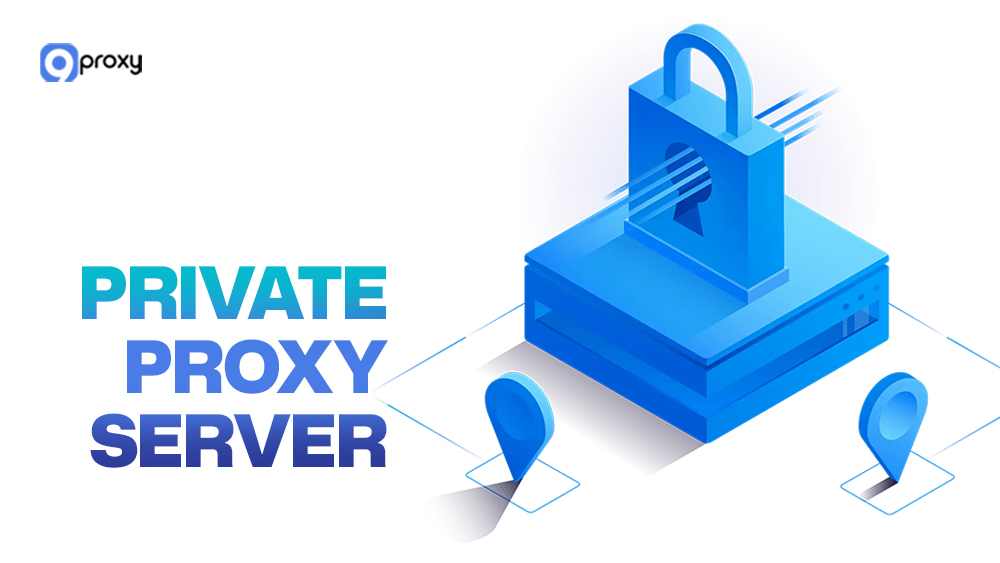
What Is a Private Proxy Server?
A Private Proxy Server, also known as a dedicated proxy, is an exclusive connection point to the internet, assigned only to one user or organization. It sits between you and the websites you visit, routes your requests, and replaces your real IP with a unique private IP.
Unlike shared proxies, where many people use the same IP, a private proxy is yours only. That exclusivity gives you higher reliability, faster speed, and better control of your online identity.
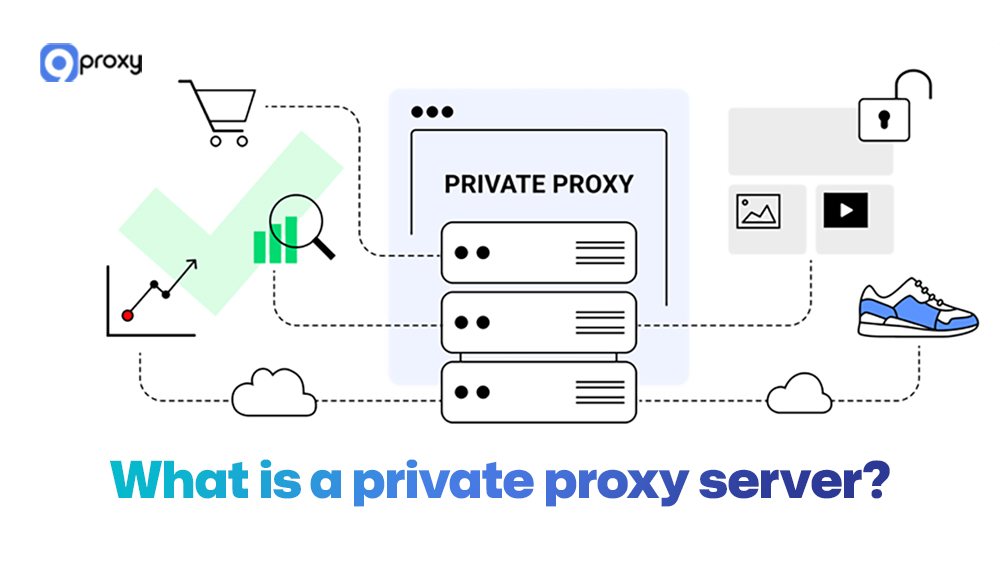
Common types of private proxies:
- Residential Proxies: Real home IPs from ISPs. Best for authenticity and staying under the radar.
- Datacenter Proxies: Server-hosted IPs. Very fast and scalable at a lower cost. For more comparison details, see datacenter proxies vs residential.
- Mobile Proxies: IPs from 4G or 5G networks. Ideal for mobile-focused tasks that require maximum trust.
Benefit of Private Proxy
Private proxies give strong benefits for both personal and professional use:
- Enhanced Security: They hide your real IP so hackers, trackers, and third parties cannot see your location or activity.
- Improved Privacy: Your IP is dedicated to you, so your traffic is not mixed with others. This protects your identity and behavior online, similar to concepts discussed in nat vs proxy.
- Access to Geo-Restricted Content: Pick IPs from specific countries to view local sites and streaming libraries that are normally blocked.
- Bypassing Network Restrictions: Safely get around school, workplace, or country firewalls to keep your access open.
- Better Performance and Speed: Because you do not share bandwidth, private proxies provide faster speeds, higher uptime, and steady performance for heavy tasks.
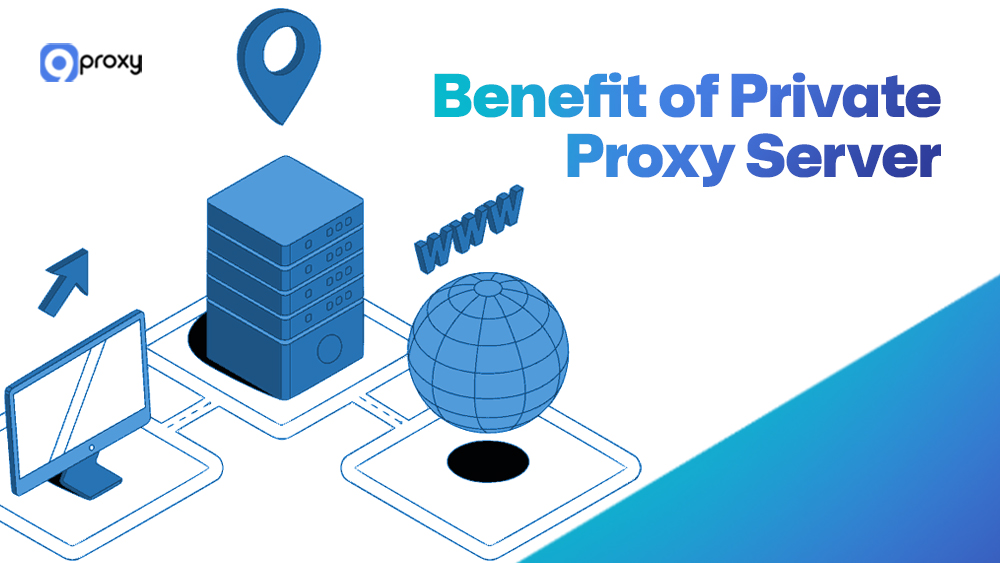
Drawbacks of Private Proxy
While powerful, private proxies come with a few limitations:
- Higher Cost: Dedicated IPs cost more than shared or free private proxy servers, but offer greater stability and safety.
- Smaller IP Pool: The number of available IPs depends on your plan, fewer than massive shared pools but much cleaner.
- Technical Setup: Configuration may require proxy management knowledge, especially for large-scale or automated tasks.
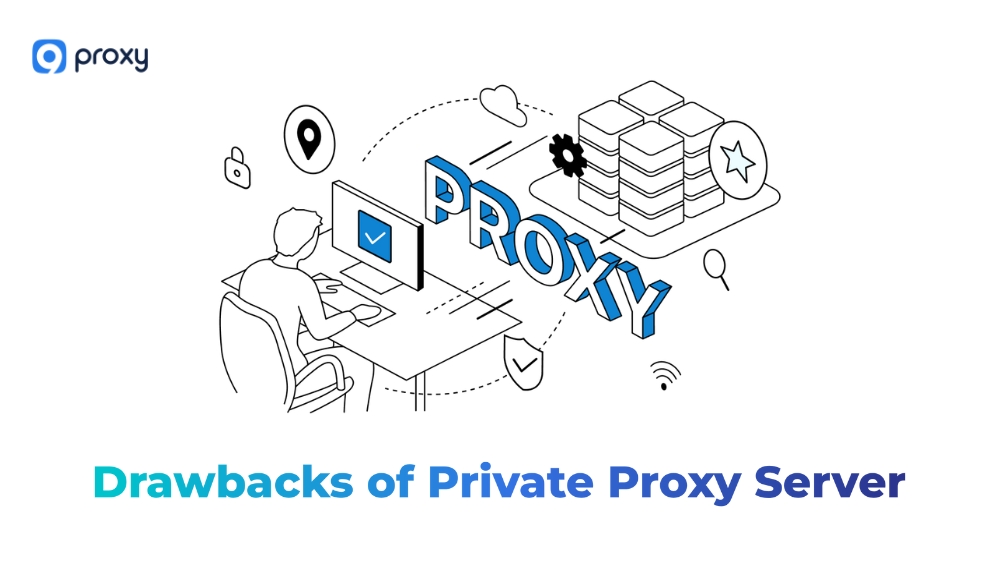
How Does a Private Proxy Server Work?
A Private Proxy Server sits between you and the website you visit. When your app or browser uses the proxy, your request goes to the proxy first. The proxy hides your real IP, adds its own private IP, then sends the request to the website. The site only sees the proxy’s IP.
This flow is simple: You → Private Proxy Server → Website → Private Proxy Server → You. By handling IP routing and responses, the proxy keeps your true location and identity private.
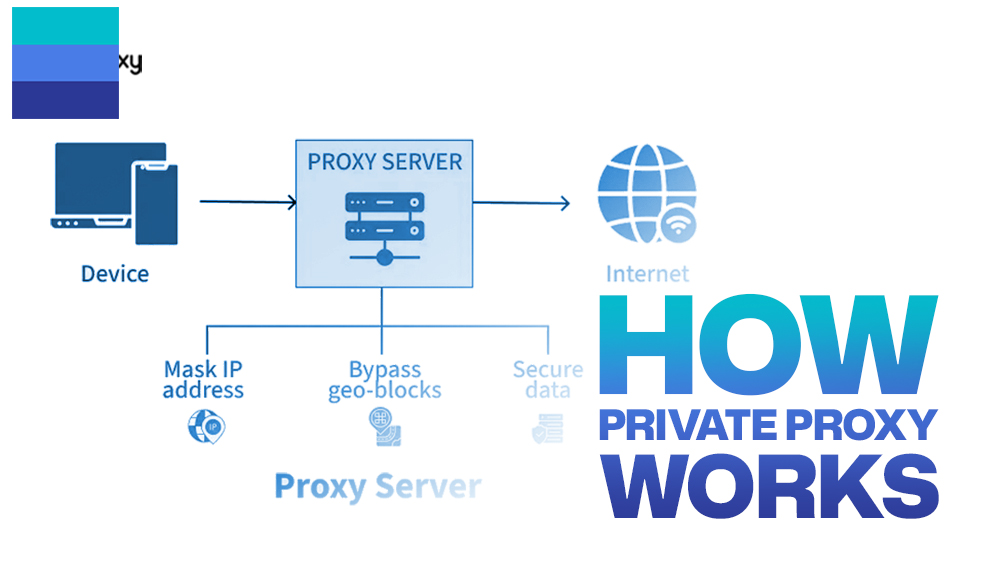
You can choose two session styles:
- Rotating IPs: The IP changes every request or after a set time. Best for high anonymity and scraping at scale.
- Sticky IPs: You keep the same IP for longer. Best for logging in, managing accounts, or any task that needs a stable session, often used alongside tools like Dolphin Anty Browser.
Reasons to Use a Private Proxy
When should you use a private proxy server? Use it whenever your work needs exclusivity, reliability, and strong security. A private internet access proxy server gives you a clean, stable IP that is under your control. Key reasons we recommend it:
SEO Monitoring
We run large numbers of Google and Bing queries without rate limits. With a dedicated IP, you can simulate target locations and check local SERP rankings exactly and consistently.
Web Scraping and Data Harvesting
A private proxy server keeps your IP clean and trusted, lowering block risks. You control request speed and frequency so data collection stays smooth and continuous.
E-commerce Price Monitoring
Check competitor prices from many regions without exposing your business. A stable private IP helps you gather accurate, untampered pricing data.
Social Media Account Management
Give each account its own stable IP and digital footprint. Consistent logins through a private proxy server reduce flags and bans on platforms like Instagram and Facebook, often done effectively with tools like Dolphin Anty.
Advertising Verification
Spoof your location to verify ad placements in target regions, prevent ad fraud, and confirm that campaigns appear exactly as intended.
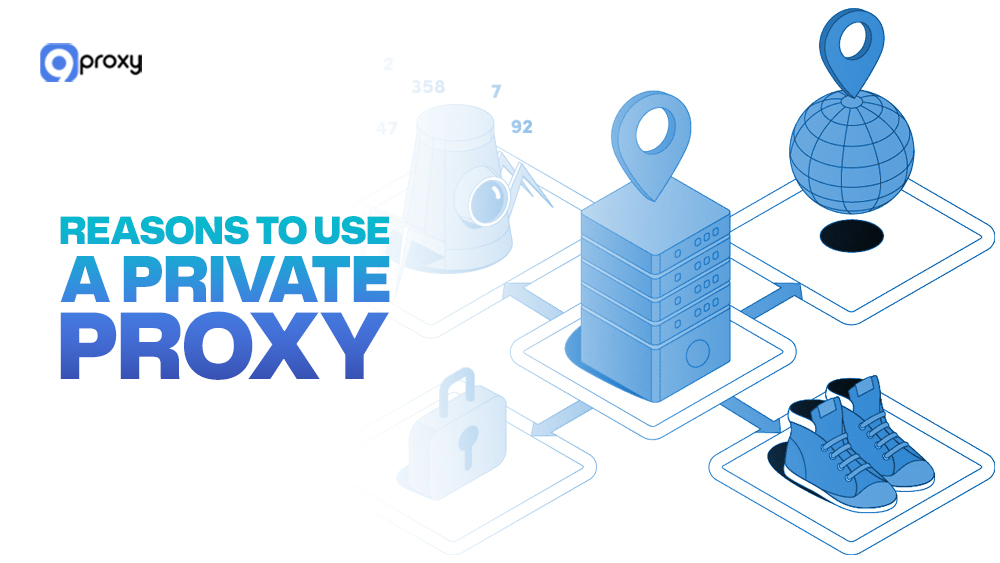
How to Choose the Best Private Proxy Server
Picking the best private proxy server starts with your goals. 9Proxy recommends focusing on these keys:
IP pool size and geographic diversity
Choose providers with a large, worldwide pool so you can get IPs in the exact countries or cities you need for geo-targeting and bypassing location blocks. Check the coverage map.
IP quality and exclusivity
Prefer truly dedicated IPs used only by you. Clean, non-blacklisted IPs reduce bans and performance issues. Ask how the provider sources and vets their IP addresses.
Session control
Decide whether you need rotating IPs for every request or sticky IP sessions for stable logins. Make sure you can configure rotation frequency and sticky duration to match your workflows.
Protocol support
Ensure support for HTTP, HTTPS, and SOCKS5 so all traffic types are handled securely and reliably, similar to the distinctions highlighted in secure web gateway vs proxy.
Speed and reliability benchmarks
Look for proven uptime, low latency, and independent tests. Consistent performance prevents costly downtime and keeps operations running smoothly.
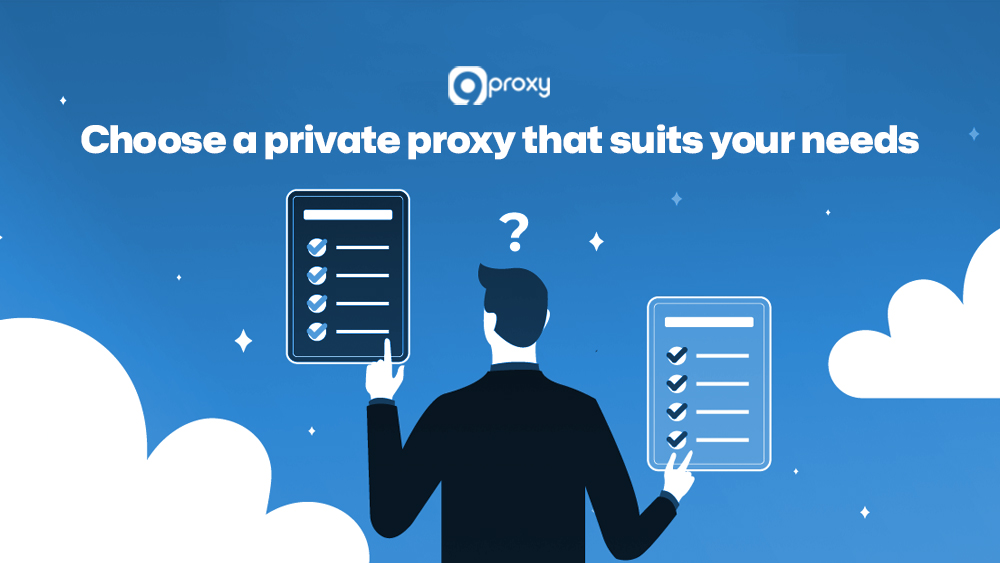
Common Use Cases and Applications
Below is a quick overview of how each proxy type is used for different purposes:
Each type brings unique advantages. Your choice depends on the balance of trust, speed, and cost that fits your project. In summary, private proxies unlock countless online possibilities, from business intelligence to personal privacy.
9Proxy: Your Source for Quality, Affordable Private Proxies
At 9Proxy, we specialize in delivering the world’s most reliable and high-performance Private Proxy Server solutions.
- Our Global Proxy Network: 9Proxy offers clean residential IPs from over 90 countries with 99.9% uptime and low latency. It supports HTTP, HTTPS, and SOCKS5 protocols, with instant IP replacement and auto-rotation for seamless sessions. Unlimited bandwidth is included, and pricing is based on IP count, not data usage.
- Exclusive Features: 9Proxy stands out with exclusive features like the “Today List” for reusing proxies within 24 hours, auto-refresh and rotation for stable, undetectable connections, and team sub-accounts for secure multi-user access. It also offers full API integration and a Fail-Safe Guarantee that refunds any proxy failing within 60 seconds.
- Affordable Pricing and Bonuses: 9Proxy offers pricing from just $0.04 per IP with flexible plans for all users. New users can get 5 free trial IPs, plus 5% off with code 9PROXY. Pay with crypto to receive 5% extra IPs instantly.
- 24/7 Support and Multi-Platform Access: We provide dedicated support 24/7/365 via 9proxy.com, Telegram, Facebook, X (Twitter), and TikTok. Our proxy services work seamlessly across Windows, macOS, and Linux, ensuring universal compatibility and ease of use.
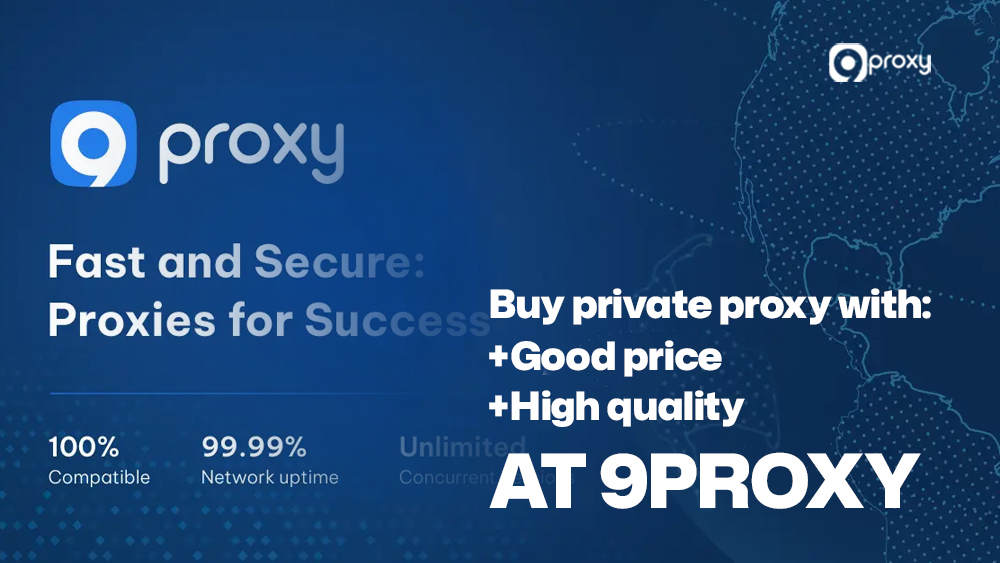
9Proxy is more than a service; it is your global privacy partner. We empower individuals and businesses to browse confidently, securely, and without limits.
FAQs
What is the difference between private and public proxy?
A private proxy is used exclusively by you, offering faster speeds and higher reliability. A public proxy is free and shared by many, often resulting in slow performance and weak privacy.
How to test proxy speed and reliability?
You can measure latency using tools like Speedtest or Proxy Checker. 9Proxy also provides built-in performance metrics and success rate data in your dashboard for instant evaluation.
Are Free Private Proxy Servers Safe and Reliable?
Generally not. Free proxies may log your activity, inject ads, or expose data to third parties. In contrast, 9Proxy’s paid services ensure secure encryption, clean IPs, and stable performance, ideal for serious users.
How to switch between proxies safely?
Before switching, always clear cookies and cache and end active sessions. Use 9Proxy’s rotation tools or APIs for seamless, secure proxy switching without account conflicts.
Conclusion
A Private Proxy Server is your gateway to privacy, performance, and unrestricted access online. It is essential for anyone who values digital safety and speed. At 9Proxy, we deliver premium, affordable private proxies backed by a 99.9 percent uptime network and 24/7 global support.
Choose 9Proxy today, browse confidently, protect your identity, and experience the web without limits.
Get Newsletters About Everything Proxy-Related